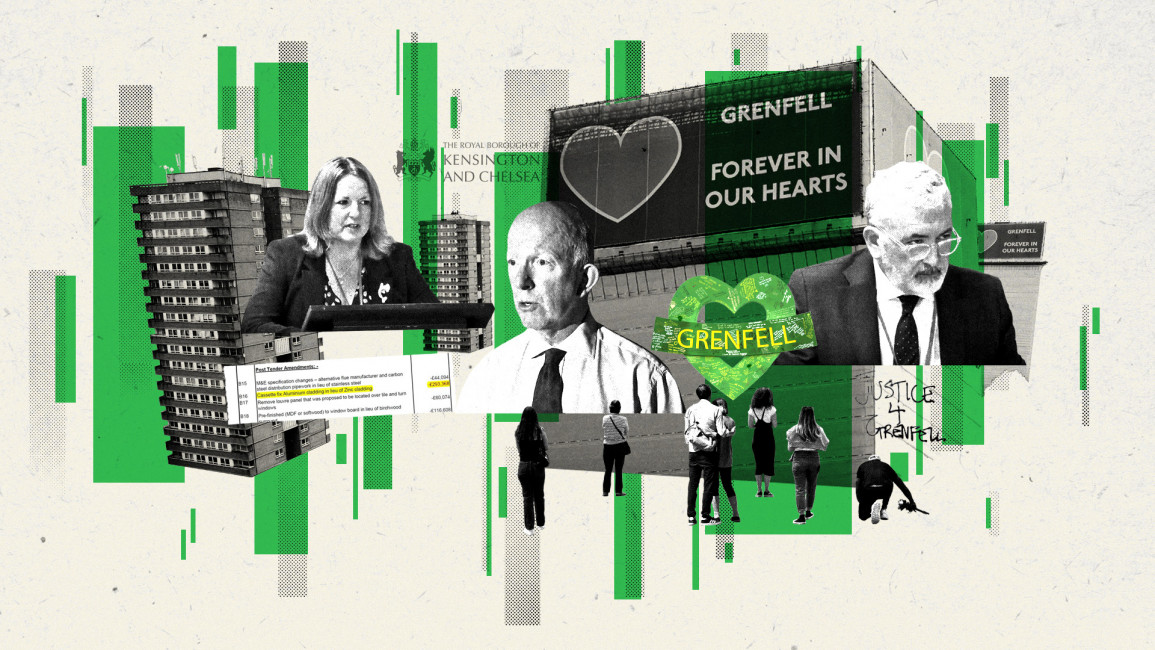Grenfell 5 years later, don’t keep calm and carry on: Part 2
Before, during and after the fire the community of Grenfell Tower and many across the borough and country were failed by the state. Grenfell was the UK’s Katrina, not for its death toll and destruction, but for the failures of state that bred the disaster, and then the absolute failure to respond appropriately.
The government let safety standards slip, allowing the cladding and insulation industries to warp regulations to allow substandard materials into the British marketplace. The lax regulations saw Britain dubbed a “dumping ground” for substandard materials. Various moments were presented to synergise regulations with the European Union, getting rid of the ambiguities that let industry build with petrol. But government did not act. They did not want to distort the market, in the words of Brian Martin.
In the decades that led up to Grenfell, the self-lacerating state cut its limbs off and sold them to the private sector. The privatisation of the Building Research Establishment (BRE) was a fatal blow to fire safety. The sale came brought at the tail-end of Thatcherite rule, enacted under the last years of John Majors rule. It created the conditions for the market to act against the people’s right to life.
''Grenfell showed, to those paying attention, that the UK no longer has a functioning welfare state. Behind the shell of government lies a consortia of outsourced companies, bidding for the big contracts and shirking responsibilities''
With the public/private divide smudged, leading civil servants like Brian Martin came to be a conduits for profit-driven industry in the realm of public good of regulation. And in a market state, with Thatcherism infusing everything with a contempt for the nanny state, private profits trumped any sense of public protection. At a local level the Royal Borough of Kensington and Chelsea cut their building control team but two thirds in the years before Grenfell, leaving them with just four employees at the time of the fire.
Elastic language and ambiguities were written into crucial government documents, none more so than Approved Document B - the fiercely litigated text at the heart of the Grenfell inquiry. Industry duly stretched out the document, finding themselves compliant with regulations, even while adorning high rise towers with highly combustible materials.
Yet, they were able to mark their own homework, with the regulatory services semi or entirely privatised, their incentive was to create the conditions for a flourishing market. Arconic’s cladding, some experts hold, should not even be put on dog kennels. But its cassettes were sold across the country and applied to public housing, private housing, hospitals, schools and more.
Their targeted sale to the local authority and Kensington and Chelsea Tenant Management Organisation (KCTMO) led to the tower being clad in their PE Reynobond cladding system, which proved to be the greatest accelerant of the fire on the night and the means by which the it became the first in our history to spread like it did.
But while industry was building with petrol, residents were told to stay put. Blocks around the country still state this command in their communal information boards and fire officers still tell people to remain in their flats.
Remarkably, despite the Public Inquiry’s judge Martin Moore-Bick concluding that the law was broken, and pointing out huge holes in the performance based system of fire safety, the cladding that adorned Grenfell and accelerated the fire from the 4th floor to the 24th in little over fifteen minutes, remains on buildings across the country.
For all its supposed efficiency, it is the private sector’s blocks where action is most glacial.
For, when responsibilities are defused, and everyone wants a piece of the profits, no one wants the costs. The game of ping-pong between developers, landowners and government over who pays means the costs have been burdened by the leaseholders.
The generation who went from rent to buy with government support and nudging have been shoved into precarity and ritually ignored. Only when the second homes of celebrities and politicians began to face exorbitant service charges did the issue get national attention, but it was presented as a financial problem, not a threat to life.
As the Deputy Editor of Inside Housing Peter Apps told me, the policy of ‘stay put’ is the reason that leaseholders are having to pay such huge remediation costs. A reconsideration of fire safety protocols - primarily a plan of escape - would relieve the insurance issues that currently cause a large part of the crisis. It would also enshrine rights to life above the economic interests of landowners and rentiers. However, basic fire safety conditions that are statutory in much of the world are missing in Britain.
Rydon, Arconic, Celotex and Kingspan all profited from the reduced safety standards in the redevelopment of Grenfell. Yet many continue to profit at the tax payers expense. Rydon have a profit loop where they can redevelop and then remediate buildings. Even after their botched jobs, and can then get the contract to fix their own mess. It has taken five years for Michael Gove to understand the populist appeal of “polluter pays,” but in reality the status quo remains where polluter profits and the people die.
Grenfell showed, to those paying attention, that the UK no longer has a functioning welfare state. Behind the shell of government lies a consortia of outsourced companies, bidding for the big contracts and shirking responsibilities.
The government promised to implement the Grenfell Inquiry First Phase recommendations in full. They reneged.
There are now a litany of broken promises made by the government, but none more egregious than their latest. They have denied their duty to ensure those with disabilities can be assisted to evacuate in the event of a fire. Their contempt, usually framed as localised and restricted to others in fact extends to the very demographics who vote Conservative.
Even ‘Generation Buy’ face the omnipresent threats presented by the market’s dominion over life.
Just like with the blanket ‘do not resuscitate’ orders issued in the pandemic, the government have made patently clear they are indifferent to mass death, even when they or those who they do business with cause it.
Yet, like the tower itself, such truths are shrouded by a glossy veneer. The burnt husk behind the tarp is a landmark to the organised neglect and abandonment that has defined British polity in the Neo-liberal era. That is why the government now seek to dismantle the tower and cleanse the London skyline, replacing it with jerry built blocks riddled with issues, because the market demands we live in substandard and unaffordable homes.
Five years on, we owe it to those affected to punish those responsible. We must make sure a “never again” politics emerges. Better late than never.
Daniel Renwick is a writer and videographer who has worked closely with the Grenfell community in the last five years. He has co-authored the forthcoming book Squalor with Robbie Shilliam, due for release in November and made the documentary Failed By the State - the struggle in the shadow of Grenfell, amongst other publications.
Have questions or comments? Email us at: editorial-english@alaraby.co.uk.
Opinions expressed in this article remain those of the author and do not necessarily represent those of The New Arab, its editorial board or staff.



